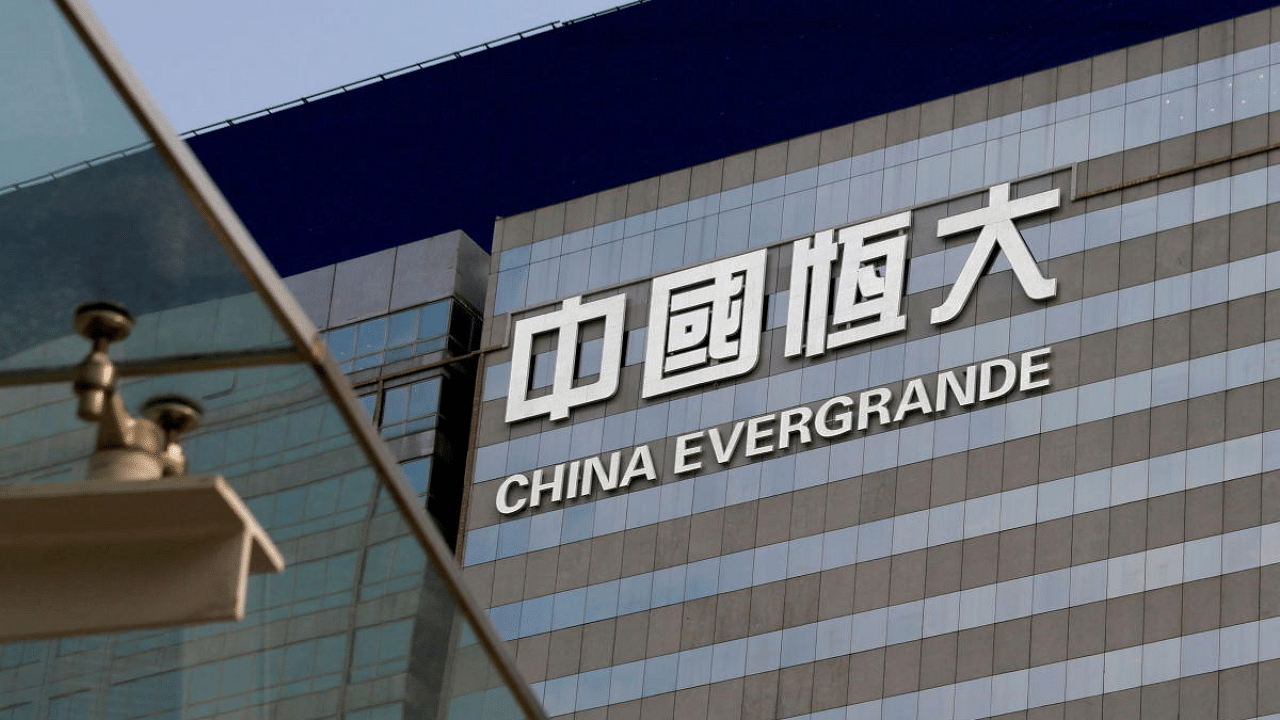
Bonds issued by indebted developer China Evergrande Group slumped on Monday after a ratings downgrade led to restrictions on their use as collateral, prompting China's stock exchanges to halt trade.
The Shanghai Stock Exchange said in a statement that it had temporarily suspended trading in China Evergrande Group's 6.98% July 2022 corporate bond following "abnormal fluctuations." The exchange had also suspended trading in the bond on Friday.
Shanghai exchange data showed the bonds sliding more than 25% to a low of 40.18 yuan after the resumption of trade on Monday afternoon. The company's 5.9% May 2023 Shenzhen-traded bond, which was also suspended, fell more than 35% after trading resumed.
The slump in bond prices comes after a ratings downgrade erased the bonds' value for use in pledged repo trading.
Rules governing pledged repos require bonds issued after April 7, 2017, and pledged as collateral to be rated AAA, while issuers must have credit ratings of AA or higher. Bonds issued before that date - including Evergrande's July 2022 bond - need only be rated AA or higher.
China Chengxin International Credit Rating Co (CCXI) downgraded Evergrande and its onshore bonds to AA from AAA on Thursday, and placed the company and its bonds on a watchlist for further downgrades.
On Friday, China Securities Depository and Clearing Co. (CSDC) reduced the "conversion ratio" of the July 2022 bond to zero, effective Sept. 7. Other Evergrande bonds were not included in CSDC's table of conversion ratios on Friday as they no longer qualified for inclusion.
The conversion ratio determines leverage limits for repo financing given a specific bond pledged as collateral. CSDC is owned by the Shanghai and Shenzhen stock exchanges.
A director at a local brokerage said that the reduction in the conversion ratio was a "grey rhino" - a highly obvious yet ignored threat. "It was bound to happen."
Evergrande declined to comment. But in a statement on the Shanghai Stock Exchange on Monday, it acknowledged the impact of the rating downgrade on the bonds' use as pledged repo collateral. It said the bonds had previously been deemed appropriate only for qualified institutional investors, and the downgrade had no impact on investor suitability.
Worries surrounding Evergrande, which has been scrambling to raise funds to pay lenders and suppliers, have grown into broader concerns that a debt crisis could send shockwaves through China's banking system.
On Friday, an index of high-yield Chinese dollar issuers fell to its lowest level since spring 2020.